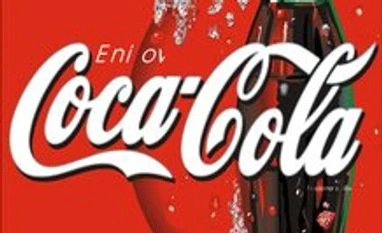Coke plan hits policy bump
Maturity extension for redeemable preference shares stuck due to lack of directions in FDI rules
Surajeet Das GuptaSounak Mitra New Delhi The plans of soft drink major Coca-Cola to get the maturity period of its redeemable preference shares extended are set for a rough ride.
The view among some sections of the government is that such an extension is not permitted. And, the Reserve Bank of India (RBI) circular 73 and a Department of Economic Affairs press release of 2007 on the subject provide no clear direction, either. So, the Foreign Investment Promotion Board (FIPB) has deferred the proposal. This has, however, raised some key policy questions on the country’s foreign direct investment (FDI) rules.
Hindustan Coca-Cola Holdings (HCCH), a holding-cum-investee company of the soft drink major in India, was in 2003 given permission to invest up to Rs 803 crore to purchase one per cent redeemable, non-cumulative, non-participating preference shares of Rs 10 each in the downstream soft drinks company Hindustan Coca-Cola Beverages Pvt Ltd (HCCB), which produces and distributes non alcoholic beverages, with a maturity of seven years. The money came in 2005.
An extension of the maturity period for another seven years, until March 2019, was sought, with HCCB saying it had accumulated losses over a significant period of operations in India, though it had been reporting profits over the past three years. So, it was necessary to continue to invest in capabilities and resources.
However, after discussions, FIPB has asked the Department of Industrial Policy and Promotion (DIPP) to seek RBI’s comments on the matter and has deferred the proposal until then. A Coca-Cola spokesperson declined to comment on the issue.
Both the existing policy and the new FDI guidelines do not have rules to deal with such proposals.
The firm contends the Companies Act permits issuance of preference shares redeemable within a maximum of 20 years. It also says the RBI and DEA circulars do not apply in this case as the preference shares had been issued by an Indian company.
Companies issue redeemable preference shares when they are in an expansion mode and do not want to go for too much of high-cost debt. After maturity, they can exchange these shares for cash or issue normal equity shares.
DIPP also raises another issue, saying downward investment is not permissible through redeemable preference shares any more, as the policy has now been changed and for funds received after May 2007, these shares are treated as debt instruments. It argues that extending the maturity of preference shares is akin to extending debt and, therefore, not under FIPB’s jurisdiction.
The investment in the downstream subsidiary was part of the Rs 3,254-crore FDI in HCCH approved by the government in the late 1990s. Hindustan Coca-Cola Overseas Holdings Pte Ltd, Singapore, holds a 69.51 per cent stake in HCCH and the remaining 30.49 per cent stake is owned by Bharat Coca-Cola Overseas Holdings Pte Ltd, Singapore.
)
)